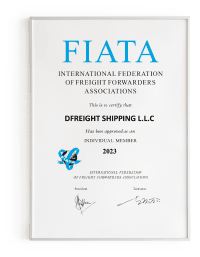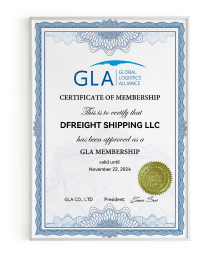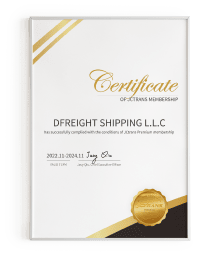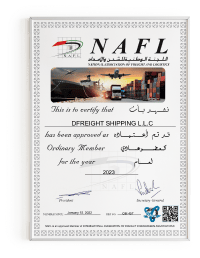Air Freight to Spain
Air Freight to Spain
Fast, Reliable, and Efficient Air Freight to/from Spain
DFreight Air Freight Service is your top choice for swift and dependable air cargo shipping to/from Spain. For a variety of commodities, including perishable goods, healthcare supplies, electronics, machinery, or anything that demands fast delivery from Spain to the UAE and vice versa, we’ve got you covered. With years of expertise, comprehensive solutions, a commitment to on-time delivery, cutting-edge technology, top-notch security, competitive pricing, and a global reach, we’re here to make your airfreight experience seamless and worry-free. Trust DFreight for excellence in air shipping and submit your inquiry right away to receive the best competitive prices for your air cargo to/from Spain.

Spain Exports and
Imports
The top exports of Spain are Cars, Packaged Medicaments, Motor vehicles; parts and accessories, Refined Petroleum, and Pig Meat, exporting mostly to France, Germany, Portugal, Italy, and United Kingdom.
The top imports of Spain are Crude Petroleum, Cars, Motor vehicles; parts and accessories, Packaged Medicaments, and Petroleum Gas, importing mostly from Germany, France, China, Italy, and Netherlands.
Market Update
According to Trading Economics, Spain’s exports to the United Arab Emirates were $2.02 billion and Spain’s imports from the United Arab Emirates were $961.18 million in 2021.
Spain and the UAE will still have close commercial connections in 2023. The UAE will continue to be a significant market for Spanish exports, especially in the industries of food, chemicals, and machinery.
Banned Products
Spain has banned the import of various products in order to protect its citizens and environment. Products that are banned from being imported into Spain include:
– Cigarettes
– Tobacco products
– Alcohol
– Drugs
– Weapons
– Explosive
Spain also has strict regulations on the import of food and animals, as well as on the import of plants and seeds.


Documents & Customs Clearance
There are a few documents that are needed for cargo customs clearance in Spain. These documents include:
– A commercial invoice
– A packing list
– A bill of lading
– A Certificate of Origin
These documents will need to be submitted to the Spanish customs authority in order to get your cargo cleared for import into Spain.
Shipping Different Commodities from/to Spain
How to Ship Frozen Food: An Ultimate Guide
Shipping Valuable Items in UAE: A Step-by-Step Guide
How to Ship Fresh Avocado Worldwide From the UAE – A Perfect 2023 Guide
Major Air Cargo Port
-
Italy
Germany
United Kingdom
Netherlands
France
Turkey
Spain
Denmark
Switzerland
Czech Republic
Hungary
Poland
Romania
Greece
Portugal
Slovakia
Sweden
Ireland
-
China
India
Taiwan
Hong Kong
Japan
Singapore
South Korea
Malaysia
Qatar
Indonesia
Saudi Arabia
Thailand
Bangladesh
Lebanon
Kuwait
-
Uganda
Congo
Egypt
Rwanda
Kenya
South Africa
Morocco
Algeria
-
-
-


We consolidate cargo from Germany, Belgium, France, Luxembourg, and nearby cities to Amsterdam, then ship it directly to Dubai.
Certificates & Memberships




- Stress-Free Documentation We simplify the paperwork process, making it easy for you to focus on what matters most – your shipment.
- Clear Cost Breakdown Our pricing is straightforward, with a detailed breakdown so you can see exactly where your money goes.
- Dedicated Support We’re just a click away. Your dedicated support team is there to address any questions or concerns promptly.
- Live Shipment Tracking Easily follow your ocean and air freight shipments 24/7 with real-time tracking. No more unexpected delays.
Ship Your Cargo with Ease
Get Started Today!
Why Choose Consolidated Air Freight?
Guaranteed Space
Secure your cargo space without worries.
Reliable Scheduling
Count on our reliable predictive schedules
Nationwide Collections
We pick up your cargo throughout Benelux and Germany
Regional Trucking
Benefit from local trucking within Europe and GCC
Competitive Pricing
Enjoy market-competitive air freight rates
Fast Delivery
Rapid and secure shipping for time-sensitive items
Regional Trucking
Benefit from local trucking within Europe and GCC
Competitive Pricing
Enjoy market-competitive air freight rates
Fast Delivery
Rapid and secure shipping for time-sensitive items
Guaranteed Space
Secure your cargo space without worries.
Reliable Scheduling
Count on our reliable predictive schedules
Nationwide Collections
We pick up your cargo throughout Benelux and Germany
Any Questions?
Reach out to us, and our experts will work with you to discover the tailored solution you need.





 Germany
Germany Netherlands
Netherlands Luxemburg
Luxemburg Belgium
Belgium





